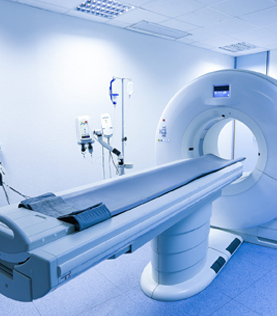
The pathology department provides services of clinical pathology, cytopathology, histopathology including frozen section and blood bank. We provide 24*7 emergency lab service. Our clinical pathology service has been available since the establishment of hospital. The Division of Laboratory medicine & Pathology (LMP) in Nepal Manmohan memorial medical college and teaching hospoital is the largest diagnostic hospital-based medical laboratory service in Nepal. It is the first Category A level laboratory recognized by National Public Health Laboratory in our country. The division of Laboratory medicine and pathlolgy (LMP) has the following departments:
Departments
It employs over 47 staffs including senior consultant pathologists, microbiologists, biochemist, transfusion medicine expert, section in-charges, technologists, technicians and supporting staff.
Chemistry:
Chemistry performs a wide variety of tests using the most current technology. It is defined as the scientific study of matter and the various compounds of the elements as it relates to the human body. Common tests analyzed in the chemistry laboratory are glucose, cholesterol, BUN, creatinine, potassium, liver and heart enzymes, thyroid tests and hormone tests, and PSA.
Hematology:
Hematology is the study of blood, blood morphology and blood diseases. Hematologists count and classify blood cells into different categories. Coagulation is the study of the clotting activity of blood.
Microbiology:
Microbiology is the study of microorganisms including algae, bacteria, fungi, protozoa and viruses. Any bodily fluid or tissue can be cultured for infectious disease. Once bacteria grow in culture, it can be tested against many different antibiotics to find the most effective for fighting the infection while limiting opportunities for antibiotic resistance.
TransfusionServices/Immunology:
Transfusion Services provides blood transfusion support by providing the patient with red cells, plasma, cryoprecipitate, or platelets. Testing is performed on the patient’s blood specimen prior to transfusing to make sure compatible blood is given. Blood products dispensed by Winona Health are supplied by the American Red Cross of St Paul, MN
Immunology:
Immunology is the study of immune products such as antibodies produced by the body in response to foreign material.
SurgicalPathology:
Pathology is the branch of medicine, which treats the essential nature of disease, especially the structural and functional changes in tissues and organs of the body, which cause or are caused by disease.
Cytology:
In cytology, a skilled cytotechnologist examines human cells under the microscope, looking for early signs of cancer and other diseases. The most common type of specimen processed in the Cytology department is the Pap smear.
Transfusion Medicine/Blood Bank
The aim of Blood Transfusion service is to make available appropriate, adequate and high quality of safe blood & blood components. At present, the department is actively involved to prepare plasma for the treatment of COVID-19 patients. The department is well-equipped with modern technology and provide the blood to other reputed hospital inside the valley.
Open visitation with only two visitors in a room at any given time. No one under 12 years of age may.
Open visitation with only two visitors in a room at any given time. No one under 12 years of age may.
Open visitation with only two visitors in a room at any given time. No one under 12 years of age may.
Drug discovery and drug development are complex and expensive endeavors undertaken by pharmaceutical companies, academic scientists, and governments. As a result of this complex path from discovery to commercialization, partnering has become a standard practice for advancing drug candidates through development pipelines. Governments generally regulate what drugs can be marketed, how drugs are marketed, and in some jurisdictions,
Drug discovery and drug development are complex and expensive endeavors undertaken by pharmaceutical companies, academic scientists, and governments. As a result of this complex path from discovery to commercialization, partnering has become a standard practice for advancing drug candidates through development pipelines. Governments generally regulate what drugs can be marketed, how drugs are marketed, and in some jurisdictions,
Drug discovery and drug development are complex and expensive endeavors undertaken by pharmaceutical companies, academic scientists, and governments. As a result of this complex path from discovery to commercialization, partnering has become a standard practice for advancing drug candidates through development pipelines. Governments generally regulate what drugs can be marketed, how drugs are marketed, and in some jurisdictions,
Drug discovery and drug development are complex and expensive endeavors undertaken by pharmaceutical companies, academic scientists, and governments. As a result of this complex path from discovery to commercialization, partnering has become a standard practice for advancing drug candidates through development pipelines. Governments generally regulate what drugs can be marketed, how drugs are marketed, and in some jurisdictions,
Although pulmonary medicine only began to evolve as a medical specialty in the 1950s, William Welch and William Osler founded the ‘parent’ organization of the American Thoracic Society
One of the first major discoveries relevant to the field of pulmonology was the discovery of pulmonary circulation. Originally, it was thought that blood reaching the right side of the heart passed through small ‘pores’ in the septum into the left side to be oxygenated, as theorized by Galen; however, the discovery of pulmonary circulation disproves this theory, which had previously been accepted since the 2nd century. Thirteenth century anatomist and physiologist Ibn Al-Nafis accurately theorized that there was no ‘direct’ passage between the two sides.
Open visitation with only two visitors in a room at any given time. No one under 12 years of age may visit without permission .
Open visitation with only two visitors in a room at any given time. No one under 12 years of age may visit without permission .
We will send you a confirmation within 24 hours. Emergency? Call 1-2554-2356-33
Although pulmonary medicine only began to evolve as a medical specialty in the 1950s, William Welch and William Osler founded the ‘parent’ organization of the American Thoracic Society, the National Association.
Swoyambhu:15,
Kathmandu, Nepal
+977-1-5247316 / 17 /18 / 19 / 20
info@mmth.edu.np
